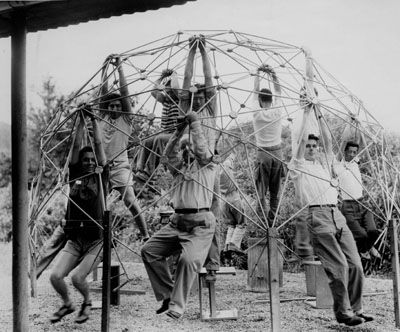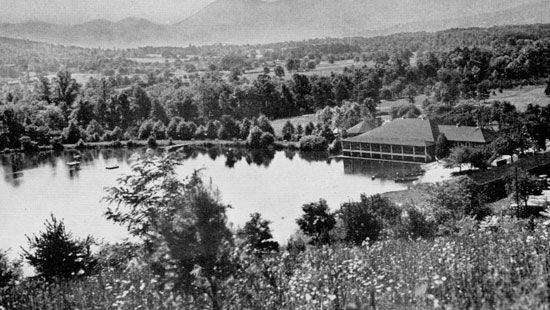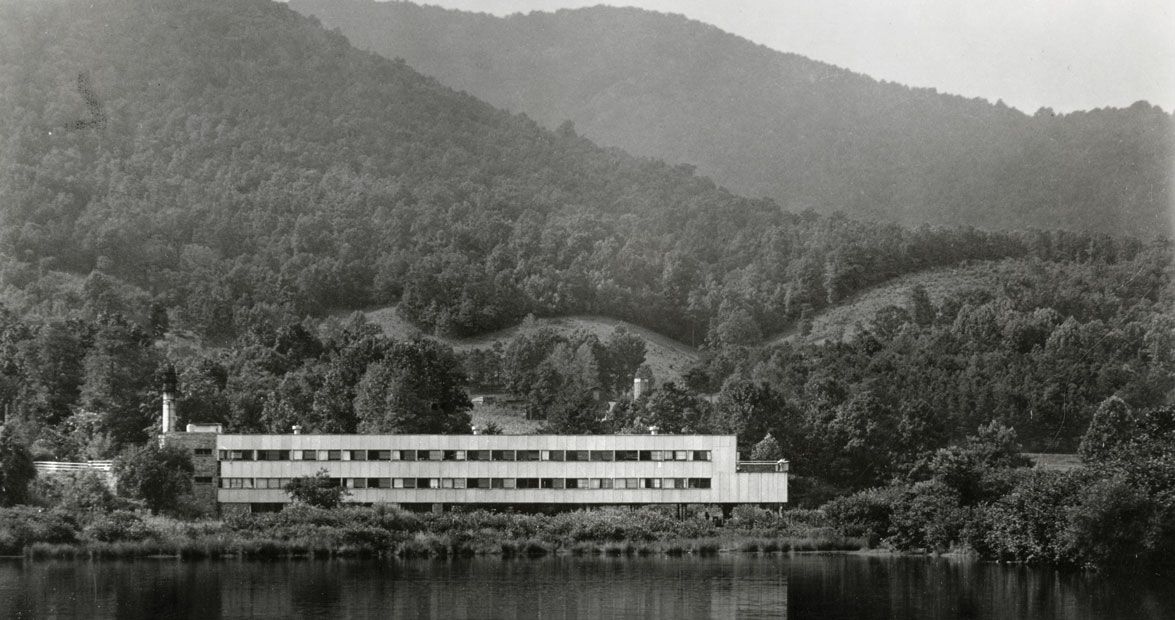BLACK MOUNTAIN COLLEGE
- John Andrew Rice, Theodore Dreier, Frederick Georgia, and Ralph Lounsbury
120 College Street, Asheville, North Carolina 28801
Black Mountain College was an experimental liberal arts school founded in 1933 in Black Mountain, North Carolina by John Andrew Rice, Theodore Dreier, Frederick Georgia, and Ralph Lounsbury. The school was governed by both students and teachers, and it believed in an anti-hierarchical philosophy and that the arts are central to the experience of learning. The school didn’t have any course requirements, official grades, accredited degrees, entry exams or tuition, and the college community participated in its operations such as farming, construction, and kitchen duty.
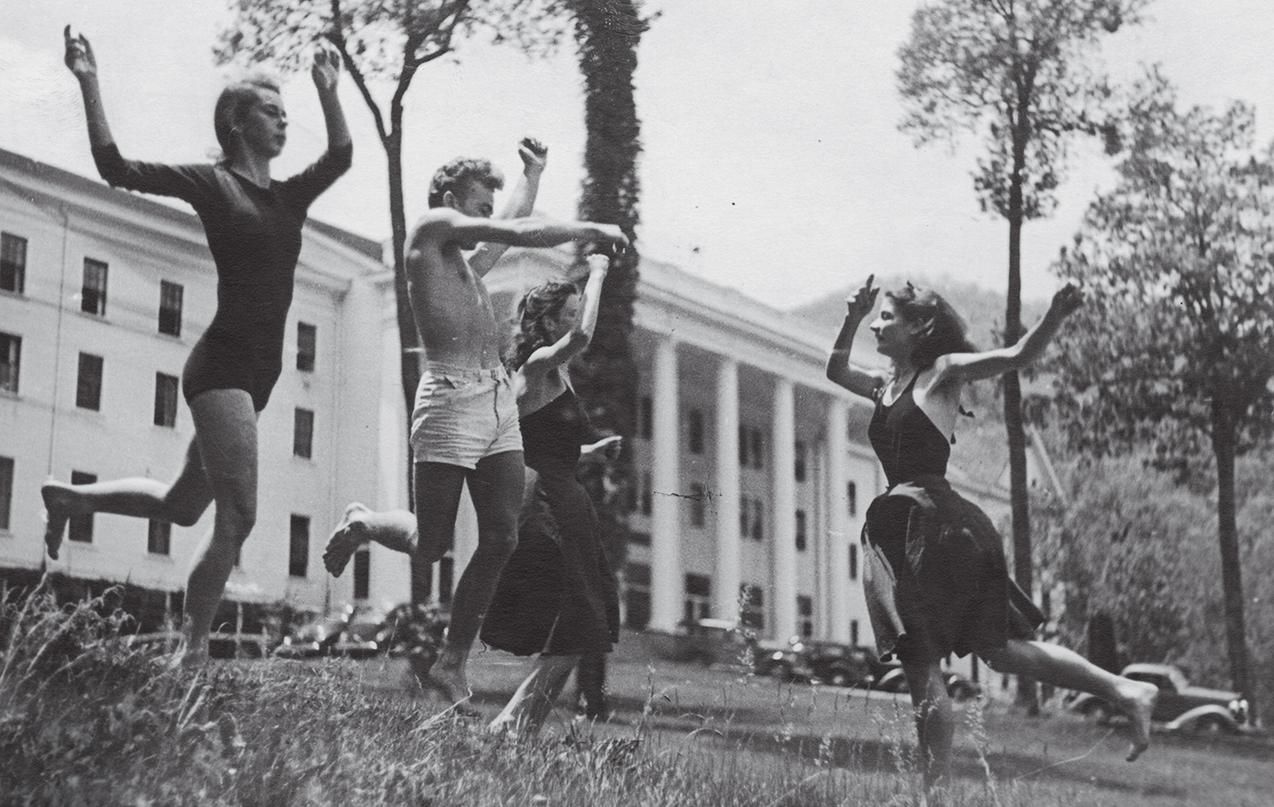
Many of the school’s faculty came from the Bauhaus, a similarly progressions liberal arts school in Germany, due to the school being shut down by the Nazis in 1933. Notable faculty members who left Europe for the US were Josef Albers, who was hired as Black Mountain College’s first art teacher, and his wife, Anni Albers, who taught weaving and textile design at the school.
A partial list of the faculty and students include Willem and Elaine de Kooning, Robert Rauschenberg, Josef and Anni Albers, Jacob Lawrence, Walter Gropius, John Cage, Cy Twombly, Susan Weil, Ruth Asawa, Franz Kline, Arthur Penn, Buckminster Fuller, Dorothea Rockburne and more.
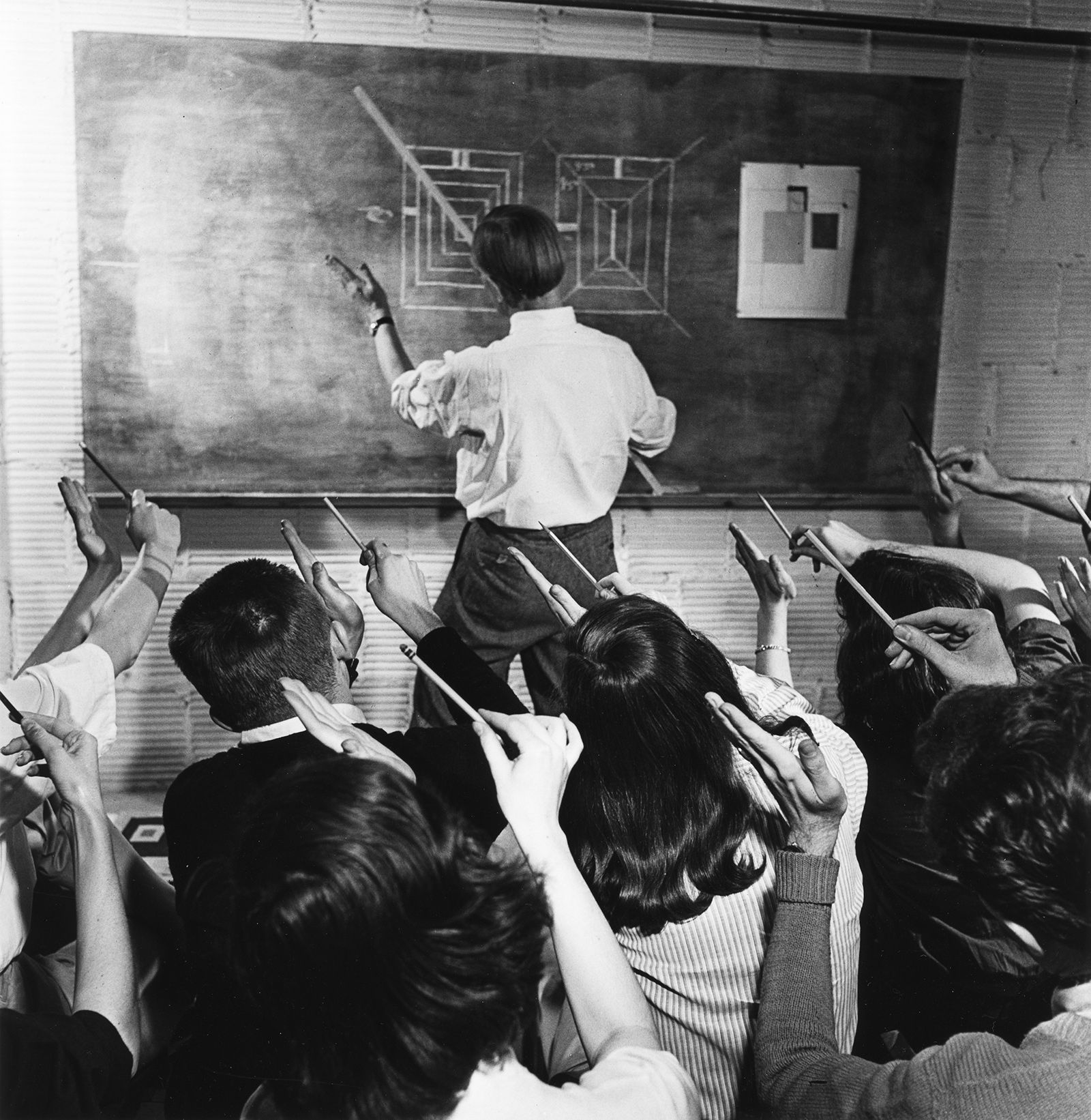
The school closed in 1957 due to funding issues, but the history and legacy of Black Mountain College are preserved by Black Mountain College Museum & Arts Center located in Asheville, North Carolina.
